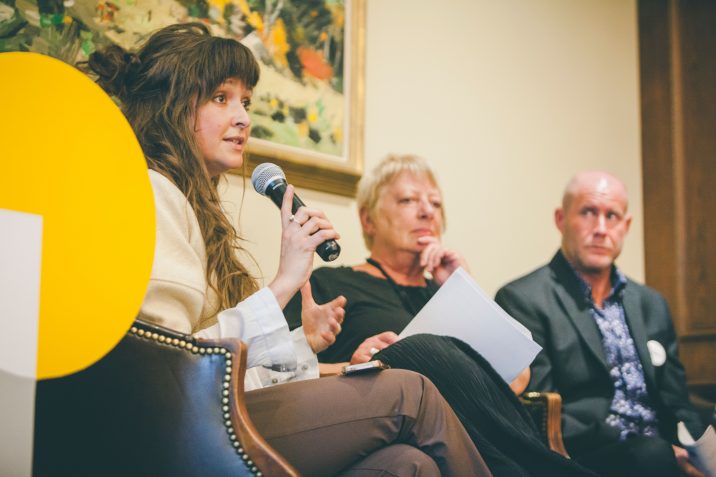You are here
Home 🌿 Medical Cannabis News 🌿 Medical cannabis users still face challenges accessing prescription medicine 🌿Medical cannabis users still face challenges accessing prescription medicine

Medical cannabis patients still face too many practical barriers to access in countries where the drug is legal, including Canada, an international panel of advocates and experts at the Business of Cannabis Medical Cannabis conference in Toronto said Wednesday.
Long considered an international leader on medical cannabis, Canada has had a legal framework since 2001.
But with recreational legalization, we started to see two systems, said Gerald Major, president of Canadians for Fair Access to Medical Marijuana, a medical cannabis patient and an arthritis survivor.
“We started to get rules and regulations placed on things that had no medical patient exemptions whatsoever. So what they’ve done is essentially forgotten about patients,” said Major.
The biggest example, he said, relates to driving. “Driving on cannabis was never an issue,” he said. Now, police are instituting more awareness and ride checks.
“Eventually I’m going to be pulled over for impairment, even though I’m not impaired. Truth be told I’d be more impaired by arthritis than the medication I’ve used to treat it,” said Major.
Patients also face high costs made worse by high taxes, Major said, which differ from province to province.
Especially for patients on a fixed income, cannabis can be unaffordable without private insurance, a problem made worse by the cannabis supply deficit.
“We are already underdosing because we can’t afford the medication. We are currently massively underdosing on CBD,” said Major. And a big part of that relates to affordability, the number one problem, he said.
“So we have to do a better job at policy,” said Major. This would include rethinking laws that enforce where you can use cannabis, for example, which might force medical cannabis users from housing being designated as smoke-free.
And, despite becoming available in Germany with a prescription, patients in Germany still struggle to access cannabis, said Martin Becker, deputy managing director at the Berlin office of global affairs consultancy Interel, who joined the panel remotely from Germany.
Patients are legally allowed to have a prescription, and that prescription must be reimbursed by public health insurers, but it can sometimes be rejected for reimbursement because of high requirements, Becker said.
About one third of all prescriptions for medical cannabis are rejected by insurers in the country, he said.
“But we don’t know exactly for [what] reasons,” said Becker.
German patients aren’t the only ones struggling to get and fill prescriptions. “I would bet that the Australian system is even more onerous,” said Shelley Boyes, global market director of Jamaican Medical Cannabis Corporation.
The country introduced medical cannabis in 2017.
“I think it’s similar to Germany–a system of last resort,” Boyes said. Medical practitioners must legally consider all appropriate treatment options before approving medical cannabis, she said.
As in Germany, Australian patients must find a medical specialist to provide a thorough clinical justification and extensive paperwork in order to have a prescription for cannabis approved.
“Needless to say, if you’re a patient in Australia you’ve got a big problem,” said panel moderator Diane Scott, CEO of the Jamaican Medical Cannabis Corporation.
In the UK, in order for any medicine to be prescribed and reimbursed through the National Health Service, patients need to go through about 18 months of rigorous bureaucratic procedures, according to panelist Basia Zieniewicz, lead for patient advocacy and external relations for the Centre for Medicinal Cannabis in the UK.
There is a lack of clinical trials or clinical data for doctors to draw upon, and cannabis is classified as a special or unlicensed medicine–only administered as a last resort if no other drug has succeeded in treatment, said Zieniewicz.
“It’s accompanied by a lot of red tape. The onus then falls on [doctors], they’re the ones responsible, and they don’t want to take the risk in prescribing something that they aren’t particularly familiar with. And it doesn’t help that it’s been stigmatized of course because of prohibition,” said Zieniewicz.
On top of that, the cost of medical cannabis, “is absolutely extortionate,” she said.
For both Becker and Zieniewicz, the classification of cannabis as a last resort in Germany and the UK, respectively, is problematic.
“Because today we know that there are many kinds of treatments where you have different options including opioids, but using medical cannabis would be a treatment with less side effects, but then its quite hard to explain it to the insurance for the permit,” Becker said.
Education and the sharing of scientific research are crucial, panelists said. Training practitioners to overcome negative stigma and relay better knowledge to patients and the public is important, they said, especially in jurisdictions where the government requires proof of the efficacy of cannabis.
“If I had a magic wand I would make medical cannabis affordable and accessible to every single Canadian patient that needs it,” said Major.
420 Intel is Your Source for Marijuana News
420 Intel Canada is your leading news source for the Canadian cannabis industry. Get the latest updates on Canadian cannabis stocks and developments on how Canada continues to be a major player in the worldwide recreational and medical cannabis industry.
420 Intel Canada is the Canadian Industry news outlet that will keep you updated on how these Canadian developments in recreational and medical marijuana will impact the country and the world. Our commitment is to bring you the most important cannabis news stories from across Canada every day of the week.
Marijuana industry news is a constant endeavor with new developments each day. For marijuana news across the True North, 420 Intel Canada promises to bring you quality, Canadian, cannabis industry news.
You can get 420 Intel news delivered directly to your inbox by signing up for our daily marijuana news, ensuring you’re always kept up to date on the ever-changing cannabis industry. To stay even better informed about marijuana legalization news follow us on Twitter, Facebook and LinkedIn.




